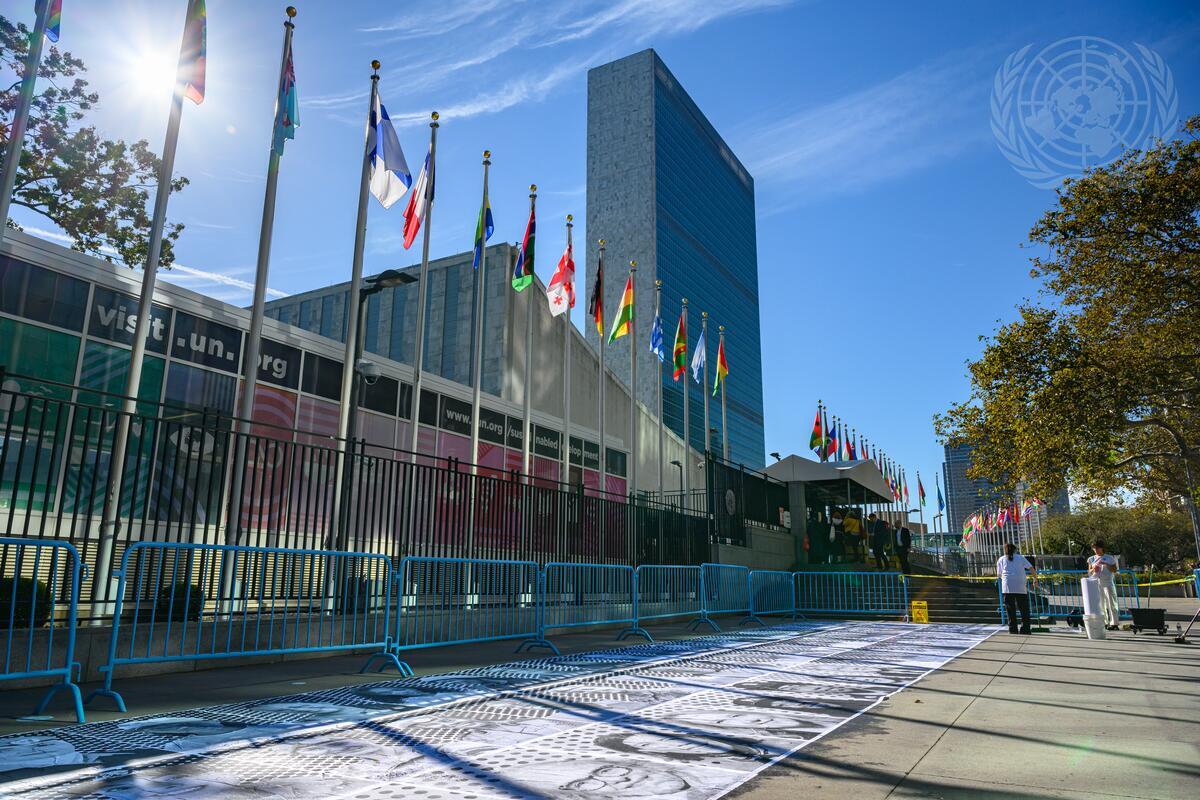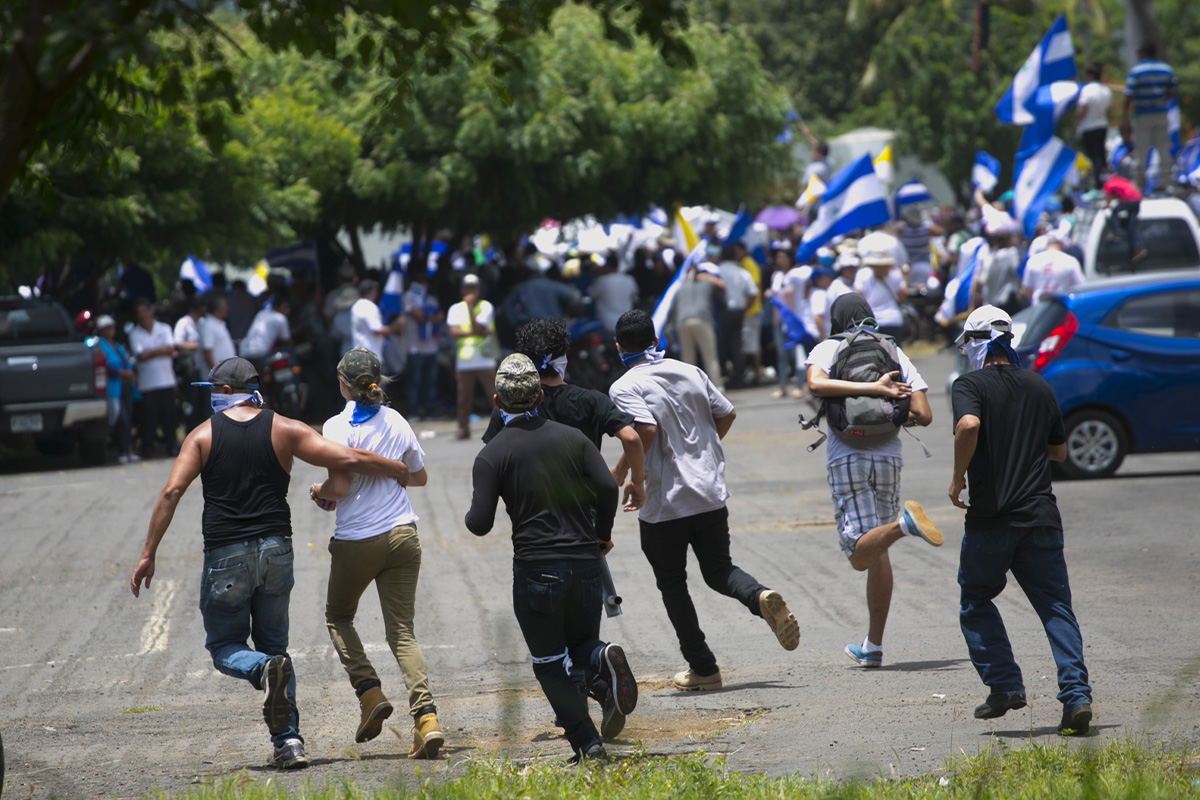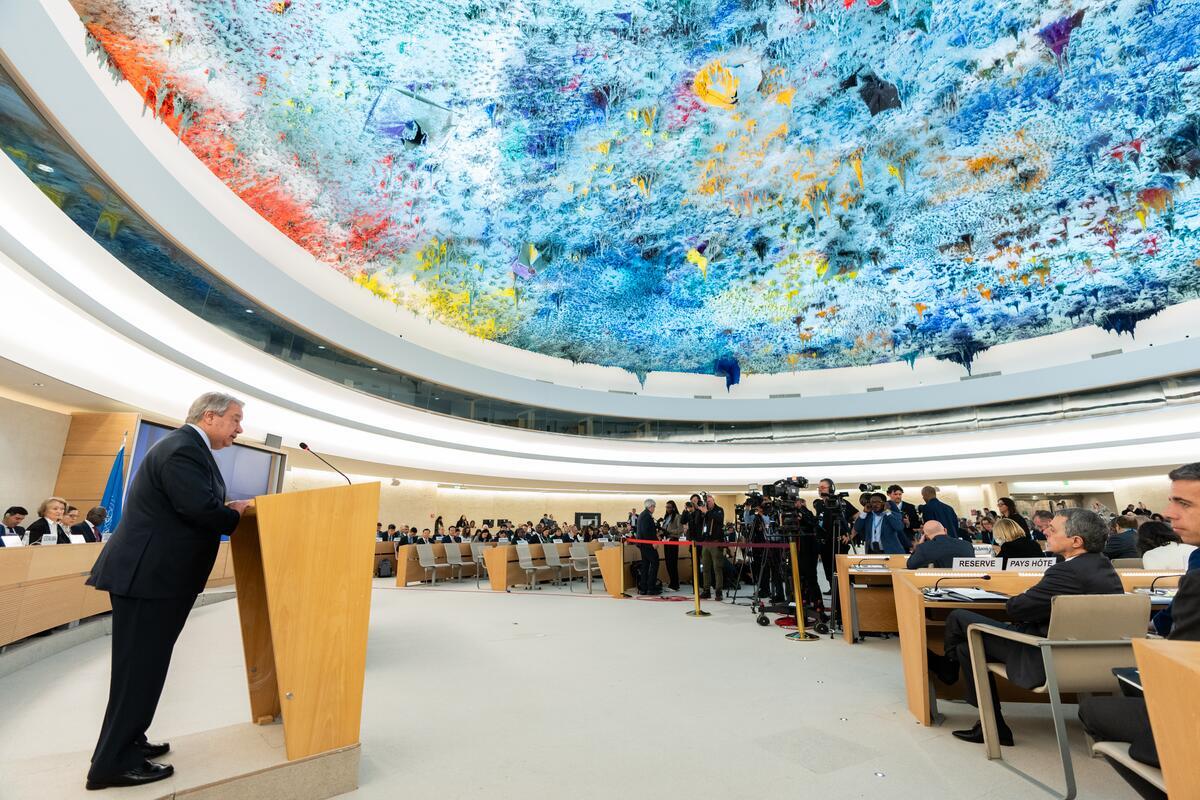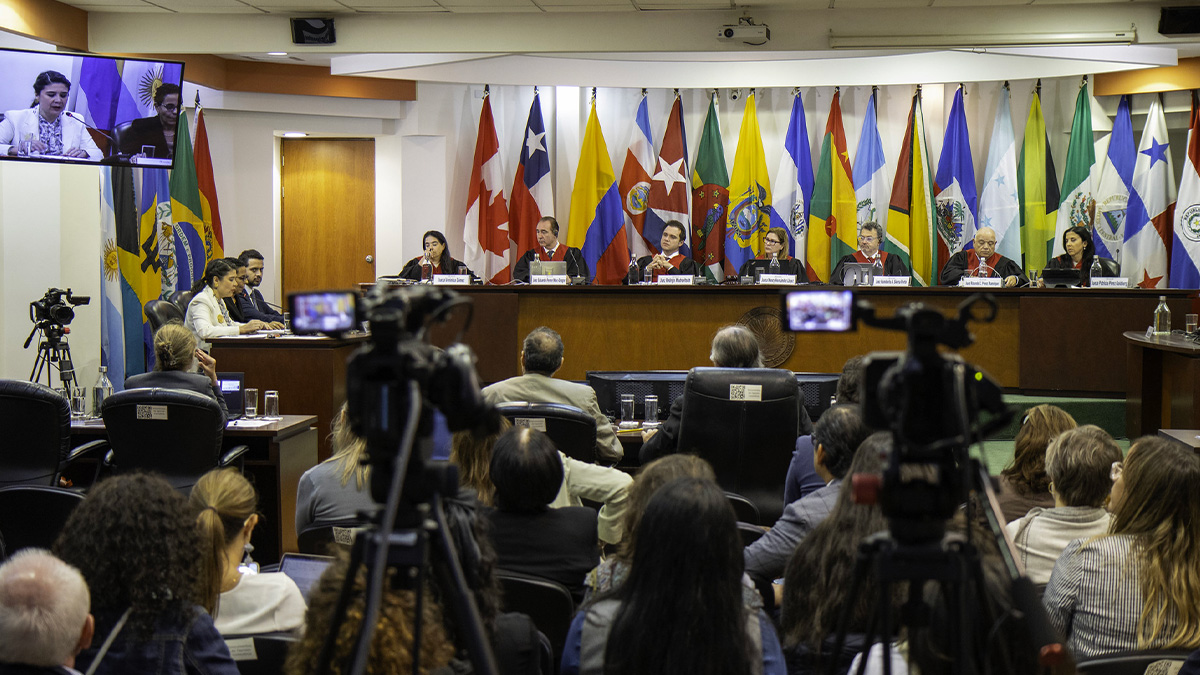Member States of the UN Human Rights Council approved a second two-year renewal of the investigative and accountability mandate of the Group of Human Rights Experts on Nicaragua (GHREN), with overwhelming support – 29 votes in favour, 4 against, and 14 abstentions.
The resolution also renews the mandate of the Office of the High Commissioner for Human Rights (OHCHR), which regularly monitors developments in the country and reports to the Human Rights Council.
The Council first established the GHREN in March 2022 following a resolution led by nine States: Argentina, Brazil, Canada, Chile, Colombia, Costa Rica, Ecuador, Paraguay, and Peru (known as the Core Group). Faced with the deepening diplomatic isolation and worsening human rights crisis in Nicaragua, this second renewal received greater support than the previous resolution, which extended the mandate of the Group of Experts in 2023.
In addition to Latin America countries, today’s vote passed with support from African and Asian States —Ghana, The Gambia, Morocco, and Malawi, Thailand, the Republic of Korea, and Kyrgyzstan. Mexico, which has not been a member of the Core Group, also voted in favor.
'We are glad that States have voted to continue and strengthen scrutiny of Nicaragua’s human rights crisis, at a time when its government is pulling out from various UN bodies.'
Colectivo 46/2, a coalition of Nicaraguan and international human rights groups that advocated for the GHREN’s renewal.
No representatives from the Nicaraguan government attended the session during which the Council’s vote took place.
The renewal of the GHREN’s mandate comes as Nicaragua’s authorities have sought to retreat from major multilateral bodies, including the Geneva-based Human Rights Council, the International Labour Organization (ILO), the Food and Agriculture Organization (FAO), and International Organization for Migration (IOM).
Nicaragua’s withdrawal from the Council has also impeded the adoption of its latest Universal Periodic Review (UPR), depriving States and civil society groups of a vital moment to react to the review at the Human Rights Council.
With this renewal, States have also introduced a crucial new mandate for the GHREN, tasking it to present its reports and findings at the UN General Assembly in New York and no longer exclusively at the Human Rights Council in Geneva, in the hope of holding the country to account in that space.
'With this strong resolution, the Human Rights Council has made it clear to Nicaragua and all States that would seek to escape scrutiny that isolation will grant them no immunity. Despite a purely performative withdrawal from the Council and other institutions, Nicaraguan authorities will still have to explain themselves in New York for their innumerable violations of human rights.'
Colectivo 46/2.
'By renewing the mandate of the Group of Experts, the international community is making sure the Nicaraguan government’s brutal human rights crackdown does not go unchecked. Authorities in Managua can try and hide, but sooner or later, whether it’s in New York or in Geneva, they will have to explain themselves before the international community.'
Raphaël Viana David, Programme Manager for ISHR.
'The renewal of the mandate of the Group of Experts on Nicaragua is key for accountability and justice. Its work has opened new international forums and prompted vital recommendations on funding for the Nicaraguan State based on its human rights compliance. This innovative mechanism strengthens international pressure to halt violations in the country.'
Claudia Paz y Paz, programme director for Centro por la Justicia y el Derecho Internacional (CEJIL).
'The approval of this resolution sends a clear message that the international community remains committed to accountability in Nicaragua. Given the regime's systematic rejection of any human rights cooperation, its refusal to allow access to UN agencies, and its recent withdrawal from the Human Rights Council, it is clear that Nicaragua has no intention of meeting its international obligations. However, the work of civil society has been key in highlighting the gravity of the regime's crimes. The resolution for the continuation of the GRHEN reaffirms that, seven years after the start of the crisis, the demand for justice without impunity remains.'
Olga Valle, director of Urnas Abiertas.
'The work of the GHREN has provided irrefutable evidence that helps understand the seriousness of fundamental human rights violations in Nicaragua. The results of its objective and independent work leave no doubt about the need to continue seeking justice, and it serves as a tool for international advocacy on behalf of the Nicaraguan people.'
Claudia Pineda, Unidad de Defensa Jurídica, Registro y Memoria por Nicaragua.
The adopted text condemns the continued commission of the crimes against humanity, including murder, torture, rape and other forms of sexual violence, persecution, imprisonment and deportation, all documented by the GHREN.
The resolution also condemned the recent constitutional reform that put an end to the separation of powers to strengthen President Daniel Ortega and his wife and now ‘co-President’ Rosario Murillo, as well as the State’s policy of illegal encroachment on and confiscation of lands belonging to Indigenous and Afrodescendent communities, and the political repression of their members, representatives and leaders.
In their latest report, experts shed light on the severe erosion of the rule of law in the country, compiling cases of extrajudicial killings, arbitrary detentions, forced disappearances, arbitrary removal of nationality and denial of right of return to perceived members of the opposition, and other patterns of violations committed to secure total control over the population, both at home and abroad.
The GHREN further encouraged the international community to strengthen support to Nicaraguan civil society, including financially, as well as to pursue accountability measures at the International Court of Justice against Nicaragua under the Convention against Torture and the Convention on the Reduction of Statelessness.
'We call on UN Member States to continue supporting the work of the Group of Experts on Human Rights in Nicaragua and to seize all avenues to hold Managua to account at all multilateral institutions, including the UN General Assembly, in line with the Group of Experts’ recommendations.'
Colectivo 46/2 coalition.
Author
Raphaël Viana David
Raphaël is ISHR's China and Latin America Programme Manager in our Geneva office. He joined ISHR in 2018.
Article also available in




